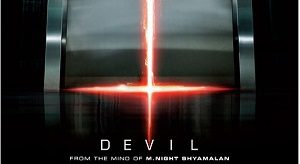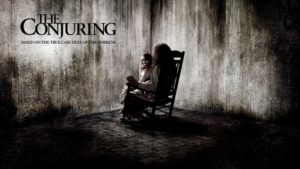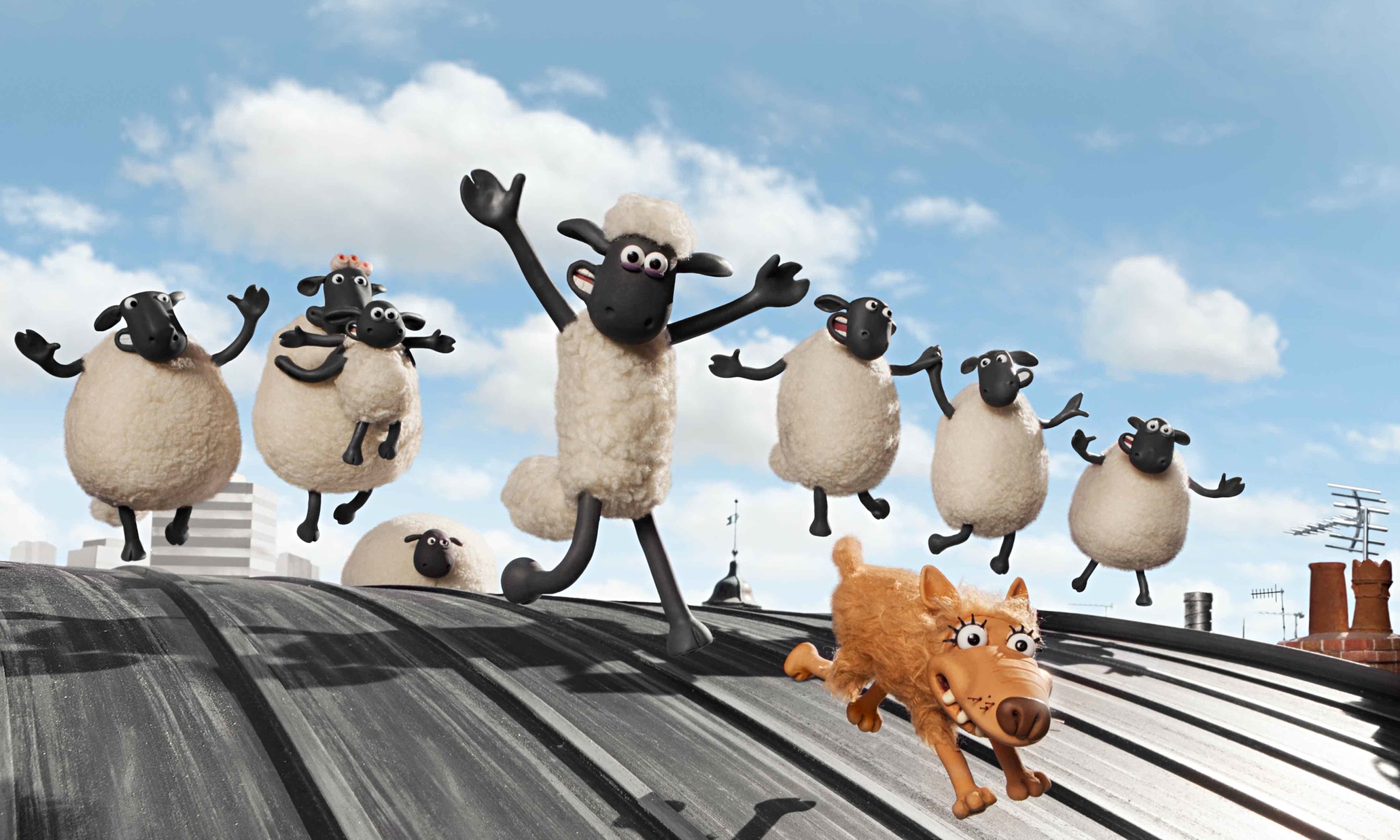Often, I find more spiritually edifying content in horror movies than in films marketed at Christians. Horror is one of the purest forms of cinema. To wit, horror films take place in such a heightened reality that the artifice lulls you into a sense of security and then betrays it with a scare. This serves the dual purpose of not only scaring the viewer but challenging their perceptions of the traditional good vs. evil archetype. In my experience, by being overtly spiritual, horror films open up viewers to think critically about more esoteric aspects of the Christian faith and are able to reinforce the idea that God is at work beyond our understanding.
 My first experience with a horror film that not only assumed God existed, but posited that He is in control over everything is the 2010 film, Devil. Devil concerns a group of people trapped in an elevator where one of them is Satan in human flesh. It’s a premise that needs a lot of selling, but The Dowdle Brothers are able to make it taut and take great care to flesh out the world surrounding the elevator. One of the key players to this world outside is a devoutly Catholic security guard, played by Michael Pena, who immediately buys into the spiritual aspect of the situation. Once the dust has settled and nearly everyone in the elevator has lost their lives, the security guard is given the last words in the film: “My mother used to comfort us. She would say ‘Don’t worry, if the Devil exists, God must exist as well.'” Not having been well-versed in the genre, these closing lines caught me off guard. I was unaware that a horror film could end on such a pro-God note.
My first experience with a horror film that not only assumed God existed, but posited that He is in control over everything is the 2010 film, Devil. Devil concerns a group of people trapped in an elevator where one of them is Satan in human flesh. It’s a premise that needs a lot of selling, but The Dowdle Brothers are able to make it taut and take great care to flesh out the world surrounding the elevator. One of the key players to this world outside is a devoutly Catholic security guard, played by Michael Pena, who immediately buys into the spiritual aspect of the situation. Once the dust has settled and nearly everyone in the elevator has lost their lives, the security guard is given the last words in the film: “My mother used to comfort us. She would say ‘Don’t worry, if the Devil exists, God must exist as well.'” Not having been well-versed in the genre, these closing lines caught me off guard. I was unaware that a horror film could end on such a pro-God note.
With their follow-up to Devil, As Above, So Below, The Dowdle Brothers floored me with how intrinsic Christian ideas can be to horror films. As Above, So Below is a found-footage movie about a group of people exploring the catacombs beneath the streets of Paris, France. While they are down there, it becomes apparent that they are trapped and not alone. As the film unfolds, we learn that the force keeping them in the catacombs is making them face down their biggest regrets (sins) and make the choice: ask forgiveness or give in to their guilt. Those who choose the latter are given over to their sin and consumed by it. The few who do choose to seek forgiveness are given their freedom. The last shot of the film is of the survivors escaping through a manhole cover, shot completely upside down. It’s the best depiction of Romans 6:23, “For the wages of sin is death, but the free gift of God is eternal life in Christ Jesus our Lord,” (ESV) that I have ever seen put on film. The last shot of the film drives the point home as the survivors have repented and their lives have changed. This is a direct parallel to the way Jesus changes your life when you become a follower of Him.
 The most outward example of this kind of “hopeful horror” that has dotted cineplexes lately is James Wan’s The Conjuring. The film is about real life paranormal investigators Ed and Lorraine Warren coming face to face with a powerful demon. At the center of all the demonic goings-on is a family trying to build a better life for themselves. The Conjuring shows Ed and Lorraine engaging in fellowship with the family, not just to get to the heart of the haunting, but because they care about them. Ed and Lorraine Warren are a faithful couple that prays and quote scripture to each other on screen. When the demonic oppression leads into demonic possession of the matriarch of the house, they don’t take matters into their own hands, they lean into God and He gets them through the situation. It’s a horror film that takes good vs. evil and makes it God vs. evil. The idea that God wins every time permeates not only these films but countless more.
The most outward example of this kind of “hopeful horror” that has dotted cineplexes lately is James Wan’s The Conjuring. The film is about real life paranormal investigators Ed and Lorraine Warren coming face to face with a powerful demon. At the center of all the demonic goings-on is a family trying to build a better life for themselves. The Conjuring shows Ed and Lorraine engaging in fellowship with the family, not just to get to the heart of the haunting, but because they care about them. Ed and Lorraine Warren are a faithful couple that prays and quote scripture to each other on screen. When the demonic oppression leads into demonic possession of the matriarch of the house, they don’t take matters into their own hands, they lean into God and He gets them through the situation. It’s a horror film that takes good vs. evil and makes it God vs. evil. The idea that God wins every time permeates not only these films but countless more.
In light of recognizing how “Christian” horror movies can be, their mature and graphic content must also be considered. The proper consumption of horror films by a Christian comes down to two things: discernment and perspective. I realize that not everyone is okay with tales of ghouls and apparitions for the sake of their faith and I believe that shows excellent discernment. Perspective then enters the picture when you have the spiritual maturity to recognize that most of these films are not going to open you up to solid theology. What they can do, however, is create an honesty about faith by introducing a space in which to talk about the hard stuff. Submitting to a faith can be scary, especially when it seems like everyone else has been “in the club” forever, and you are a newbie. Exploring those topics through a medium as familiar as film can make those conversations easier.
Horror films provide an excellent meeting place for faith and culture. When all is said and done in a lot of these films, God comes out on top and you can head out of the theater with a renewed sense of awe that you serve a God who is at work both in your life and far beyond the limits of your understanding. On the same token, you can use these films as tools to help gain a better understanding of the people around you who don’t consider themselves Christians. Cinema is a great unifier. When the lights come up and the credits start to roll, everyone is on an even playing field. Use that to start conversations and engage in your entertainment beyond the surface. While horror films are not for every Christian, learning how to watch and engage with this genre through a Christ-focused lens can enrich both your personal walk and your interactions with those outside your faith.


Thanks for writing this up. I have to say I can’t bring myself to watch horror movies because they genuinely frighten me, but this got me thinking more about the genre. I have heard of such resonance before, and I wonder how pervasive finding Christian themes in horror actually is. Is it just that finding a few examples is worth mentioning, or is it actually something that happens frequently in horror films?